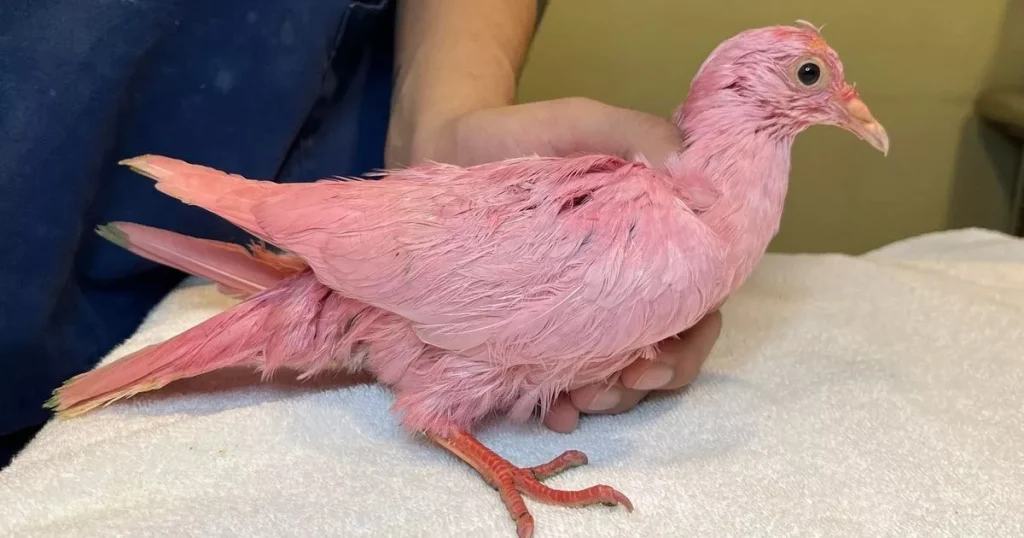Animal charities are issuing a warning about a concerning trend of dyeing birds pink or blue for gender reveal parties, driven by social media likes. The RSPCA raised concerns after a pigeon covered in pink dye passed away in Northamptonshire, possibly due to inhaling toxic dye. This practice, which originated in the USA, involves releasing birds at parties to reveal the gender of an unborn child. The trend is becoming more widespread in the UK, with reports of similar incidents at other rescue centers. Animal welfare organizations emphasize the harm caused to birds by dyeing their feathers, including health issues, impaired ability to fly, and increased vulnerability to predators. The toxic substances used in dyeing birds pose additional risks as the animals may ingest them while trying to clean their feathers.
The Leicestershire Wildlife Hospital reported an incident involving a pigeon that was likely dyed pink for a gender reveal party and later attacked by a cat. The center shared a warning on social media about the harmful effects of this practice, urging people to refrain from following such trends. Dyeing birds for gender reveal ceremonies exposes them to predators, difficulty in finding food, and the toxic chemicals used in the dye. Many of these pigeons are domestic birds that have never lived in the wild, making them ill-equipped to survive in such environments. The incident with the pigeon in Northamptonshire highlights the potential dangers associated with dyeing birds for social media popularity.
In another case in New York City, a pigeon named Flamingo died after being dyed pink for a gender reveal ceremony. The Wild Bird Fund noted that while dove releases may seem romantic, they are often detrimental to the animals involved. Releasing dyed birds as part of celebrations can lead to instances of harm as the birds are not equipped to fend for themselves in the wild. Animal welfare advocates stress that these acts of careless cruelty are not a suitable way to celebrate special occasions. They emphasize the need for greater awareness and responsible behavior towards wildlife, rather than blindly following social media trends that can endanger animals.
The practice of dyeing birds for gender reveal parties, though gaining popularity on social media, has significant consequences for the animals involved. Wildlife experts point out that domestic birds used in such ceremonies lack the necessary survival skills to thrive in the wild, making them easy targets for predators. Inhaling or ingesting toxic dyes can lead to severe health issues and even death for these birds. The warnings from animal charities aim to raise awareness about the unethical treatment of animals for the sake of internet likes and emphasize the importance of respecting wildlife. Responsible behavior towards animals involves refraining from harmful practices and prioritizing their well-being over social media trends.
Animal charities are urging parents and individuals to refrain from dyeing birds for gender reveal parties or other celebrations. The detrimental effects of this trend on wildlife, particularly on birds, are highlighted through incidents like the one involving the pink-dyed pigeon in Northamptonshire. The RSPCA and other rescue centers are witnessing an increase in such cases, indicating a growing concern over the welfare of animals used in social media-fueled fads. By sharing information about these harmful practices and their consequences, animal welfare organizations aim to discourage individuals from participating in activities that endanger wildlife. The story of the dyed pigeons serves as a reminder of the importance of treating animals with respect and consideration, rather than exploiting them for fleeting online attention.


